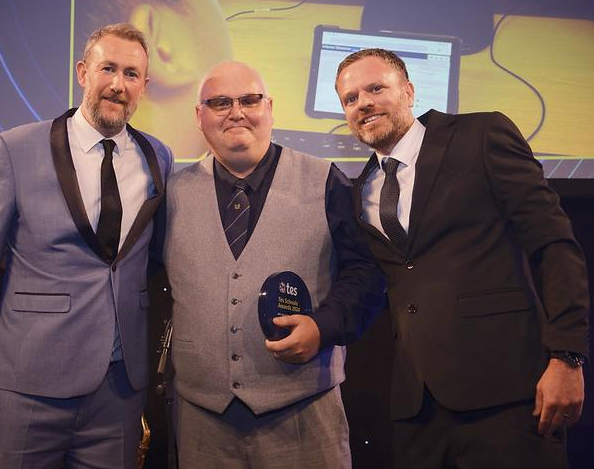
Cantell School recently won Best Use of Technology at the Tes Schools Awards 2024. It is an oversubscribed, outstanding inner-city school in Southampton with 1,268 students. 43.8% use English as an additional language (EAL). The diversity of our school is a great strength, and we pride ourselves on the support we offer to students with EAL.
We were aware that assistive technology could help students with language acquisition. When young people struggle to understand the focus of a lesson, front-of-class teaching, or specific instructions about a task or homework they can feel confused, insecure and less ready to learn.
We were looking for technology that combined speech-to-text and translation. We wanted to help our students access their lessons using real-time translation into their own language. They needed to feel included in the lesson; to be able to communicate with their teachers if they were to become more confident in their use of English.
The power of assistive technology
My role as head of assistive technology means I am always curious about technology and looking for apps and software we can use in the school. This led me to visit and speak with Microlink and they introduced us to Streamer. This had been used successfully in universities to provide speech-to-text and translation for students, so we decided to try it at Cantell.
This software provides each teacher with their own individual online area (rooms) and their students sign in on their tablet to join the room at the beginning of the lesson. The teacher conducts the lesson as usual, but they wear a wireless headset and, as they speak to the class, what they are saying appears as text on the student’s tablet translated into their own language.
In theory, a teacher could have 30 students speaking 30 different languages and each would be able to receive the lesson on their screen, in their native language, in real time. It can also speak to them in their home language as well.
The students can communicate with the teacher using the tablet in their home language and it will appear on the teacher’s screen in English. They can also save the transcript for later use; for example, to help them complete homework or as revision for a test.
Implementing the solution
Streamer had never been implemented in a school, and so there were many concerns. We might have 80 classrooms using the technology at the same time.
There was a real risk of interference between the teachers’ headsets, so students in a maths lesson might suddenly see an English lesson appear on their screen if the tablet connected the wrong headset. We researched hardware options carefully and selected a headset that was commonly used in busy call centres, and this reduced the issue.
We were using the technology with teenagers, rather than adults, so we needed to set aside extra time to ensure our students understood how to use the technology. We began with a group of Year 7 students who had recently arrived from Afghanistan. The SENCO and head of EAL identified these students because they felt they would benefit considerably. Students were enthusiastic and keen to take ownership.
We needed to train our teachers and they had to have time to get used to wearing the headsets. Teachers reacted positively as they could see immediate benefits for their students, and for reducing their own workload.
What is the impact?
We have prioritised students who have little to no English, so this has made a massive difference. Students are more engaged and active in their learning, they demonstrate greater confidence in their learning, and they clearly understand so much more.
There is nothing like seeing the smile on a student’s face when they suddenly realise that they understand what is happening in the lesson. That one smile says: “I understand”; “I feel part of the lesson”, “I can communicate”; and “I do not feel stressed anymore”. For any teacher that is impact enough.
Next year, we will widen access to those students with ADHD who struggle with attention in class and find it hard to retain information. The software will allow them to look back at the lesson and refresh their memory.
Paul Bridges is Head of Assistive Technology at Cantell School, winner of Best Use of Technology at the Tes Schools Awards 2024.
Register for free
No Credit Card required
- Register for free
- Free TeachingTimes Report every month